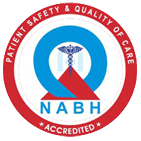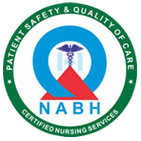FOLLOW THE MISSION HOSPITAL




Aspirin is one of the oldest drugs on the market. It was first made in 1897 and first sold to the public in 1899. At the start, it was used mainly to ease minor aches and pains and to lower fever. Over the years, doctors have found other ways to use the drug.
It is now common for people with heart disease or who are at risk of getting heart disease or of having a stroke to take aspirin every day. This helps keep their blood from forming clots that block blood vessels.
Aspirin is a very widely used drug. One report says that people in the United States take about 19 billion aspirin tablets each year. But some people react when they take aspirin or aspirin-type drugs. A harmful reaction after taking aspirin or an aspirin-type drug that entails respiratory or skin symptoms (such as an itchy rash or hives) is called aspirin sensitivity.
In some cases, a doctor wants a person with aspirin sensitivity to take aspirin every day to treat or prevent a health problem. That person may be able to go through a graded dose challenge to aspirin to determine whether aspirin sensitivity is (still) present. Challenges with aspirin in patients with suspected aspirin sensitivity need to be done carefully by physicians knowledgeable in carrying out this procedure, and who have expertise in managing reactions to aspirin if it should occur.
In patients with a type of aspirin sensitivity known as aspirin-exacerbated respiratory disease (AERD), aspirin desensitization treatment can improve the course of asthma and chronic sinusitis.
People who are sensitive to aspirin can have symptoms such as:
OR
In rare cases, the adverse reaction to aspirin can be serious or even life-threatening.
AERD is a condition that includes chronic asthma, sinusitis with nasal polyps, and sensitivity to aspirin and non-steroidal anti-inflammatory drugs (NSAIDs). Patients with AERD experience respiratory symptoms from aspirin or any aspirin type drug, including ibuprofen and naproxen. Approximately one of 10 adults with asthma and one of three patients with asthma and sinusitis with nasal polyps are sensitive to aspirin and NSAIDs and have AERD.
Patients with AERD can undergo a procedure, called aspirin desensitization, which can induce tolerance to aspirin. Even patients who have had life-threatening respiratory reactions will be able to go through this procedure, and will be able to take aspirin without reacting to it. To do this, the patient with AERD is challenged with graded doses of aspirin over a period of several days. The doctor will start by giving a very small dose of aspirin and watching to see if you react. When you get to the dose that causes symptoms, you will keep getting that dose until you are able to tolerate this dose without adverse reaction. The doctor will then give you higher and higher doses of the drug. As you keep getting the higher doses, your body will start to accept the drug without reacting.
Aspirin desensitization is generally done over a period of several days.
Patients with AERD experience benefit with aspirin desensitization treatment, that includes reduced nasal/sinus and asthma symptoms, reduced medication reliance, improved quality of life, reduced health service utilization for asthma, and reduced need for sinus surgery over time.
A recent study reported that of those AERD patients who were able to continue aspirin desensitization treatment for more than one year, 87 percent experienced benefit.
The most common side effects of aspirin are stomach pain, nausea, and heartburn. Some people stop taking aspirin because of these side effects. There are drugs your doctor can give you that will help with these problems so you can still take aspirin regularly.
Call your health care provider if you have gone 48 hours or longer without taking your aspirin or if you develop any of the signs of a bad reaction to aspirin, including:

A Unit Of Durgapur Medical Centre Pvt. Ltd.